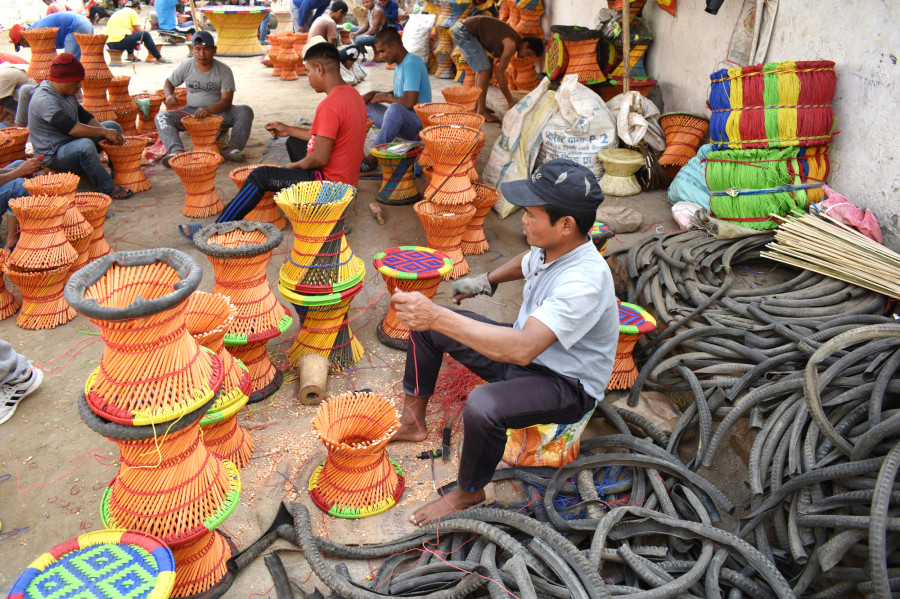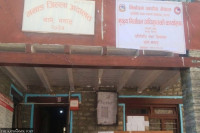Gandaki Province
Inmates of Tanahun District Prison worry as demand for traditional wicker stools declines
The price of wicker stools made by inmates is steeper than the ones available in the market, say buyers.
Samjhana Rasaili
The inmates of the District Prison in Tanahun learn how to weave muda—wicker stool—as a part of their skill-oriented training in the prison. The prison administration had initiated the training for the inmates to give them a chance at making some money. However, of late the demand for wicker stools has declined, say inmates.
The stools made by prisoners are supplied to Damauli, Byas, Suklagandaki, Myagde, Bandipur, Bhanu and other local markets outside the prison.
“We have learnt to make these traditional stools to earn some money. However, the demand for our products is not good at present,” said 65-year-old Bishnu Hari Ghimire, an inmate.
Ghimire says he made good money last June and July, but he hasn’t seen the same demand for wicker stools since.
“People from various parts of the district come here to purchase stools, but this year we haven’t got many customers,” said Ghimire.
The wicker stools are sold anywhere between Rs 250-Rs 375, depending on their size.
“There were times when we individually earned up to Rs 8,000 during festivals when the demand was high,” said Ghimire. “But now, we have around 200 units lying in stock for lack of demand.” Out of 141 inmates in the prison, 55 are trained to weave wicker stools.
According to Bijayaraj Paudel, section officer of the District Prison, the inmates have established a fund to operate the business by selling stools.
“The leader of the prison provides Rs 200 to Rs 300 to the inmates as per their work performance. The remaining amount is used to purchase raw materials to weave stools,” Paudel said.
Raw materials such as bamboos, plastic ropes and tyres are supplied to the prison from Damauli and Chitwan. Tej Kumar Shrestha, another inmate, said, “We could earn Rs 200-Rs 300 per day by weaving traditional stools. But today, the demand is low.”
Meanwhile, Puja Thapa, a resident of Byas, said the demand for stools made by the inmates has declined because they are expensive than other stools available in the market.
“I used to purchase wicker stools made by the inmates when they first started making them. The product the prisoners make and the ones we get in the market are of the same quality, but the former comes at a steeper price. The same wicker stool costs anywhere between Rs 200 to Rs 250 in the bazaar area,” said Thapa.
However, Paudel said the traditional stools weaved by inmates are usually in demand because of their durability.
“The inmates are well-trained in this craft, and they make good products,” said Paudel. “We are coordinating with the local businessmen and various organisations to promote the sale of these traditional stools. We will also work on the price.”




 9.84°C Kathmandu
9.84°C Kathmandu











